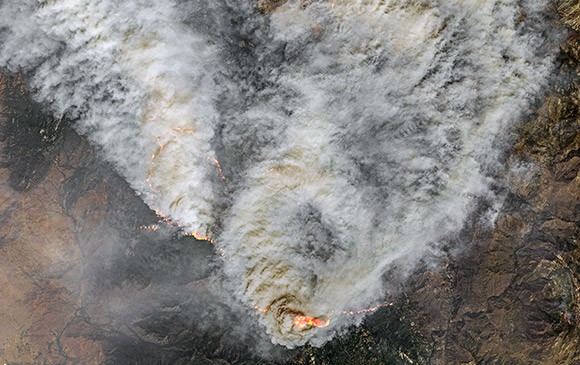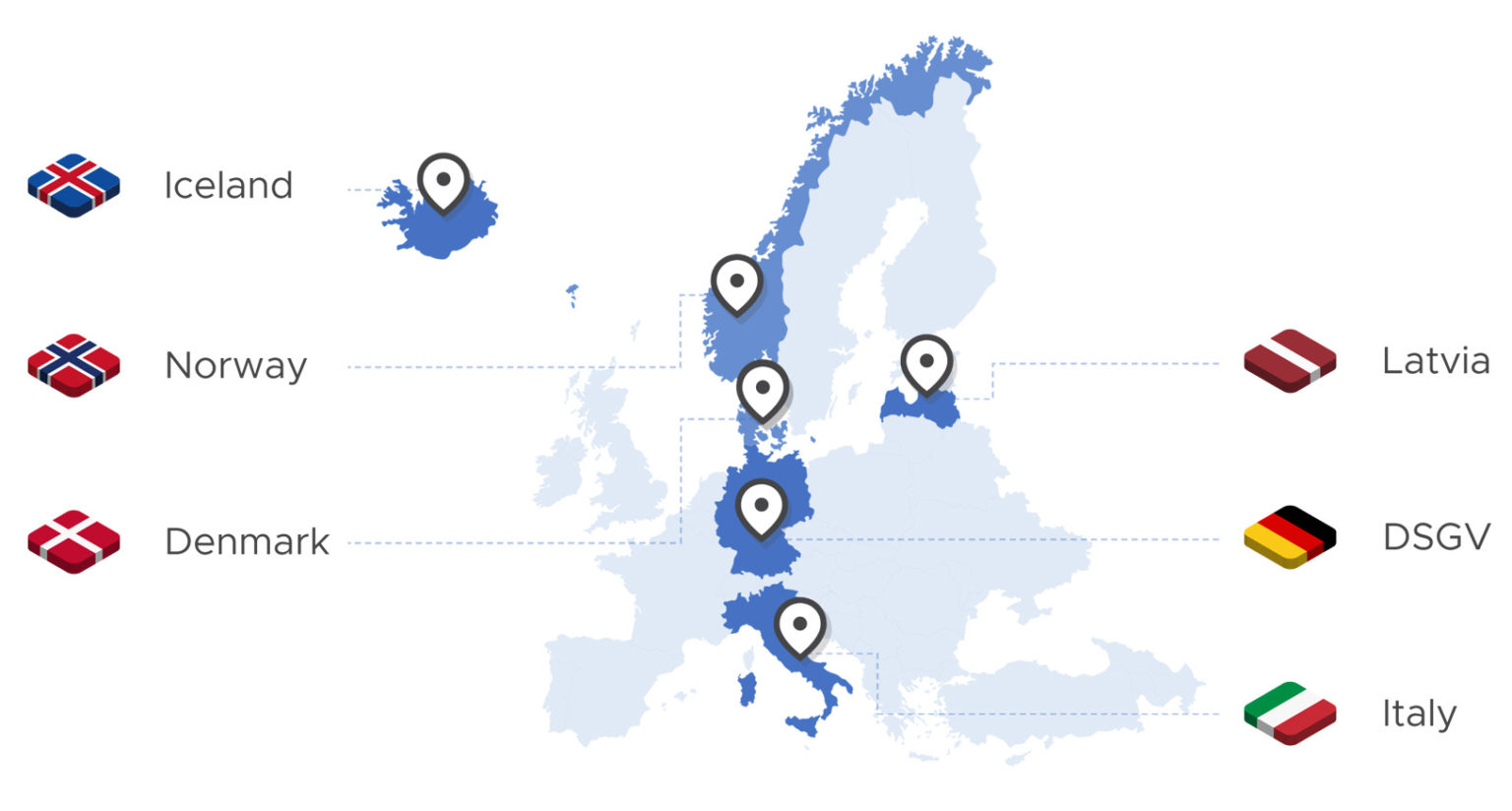Is Gambling On Natural Disasters The New Normal? The Case Of The LA Fires

Table of Contents
The Mechanics of Disaster-Related Financial Markets
The seemingly paradoxical ability to profit from catastrophe stems from sophisticated financial instruments designed to manage and transfer risk. These include catastrophe bonds (cat bonds), insurance-linked securities (ILS), and various derivatives.
- Catastrophe bonds (cat bonds): These are essentially bonds issued by insurance companies or reinsurers that pay out only if a specified natural disaster occurs. Investors receive a higher yield for accepting this risk, effectively "betting" on the disaster not happening. If the disaster does occur, they lose their principal.
- Insurance-linked securities (ILS): These are broader than cat bonds and encompass a range of financial instruments that transfer insurance risk to capital markets. They can include various derivatives and other structured products.
- Derivatives: These complex financial instruments derive their value from an underlying asset, in this case, the potential losses from a natural disaster. They can be used to hedge against risk or, conversely, to speculate on the occurrence and severity of a disaster.
These instruments work by allowing investors to profit from the difference between the predicted and actual costs of disaster-related losses. For example, an investor might buy a cat bond anticipating a relatively low probability of a major earthquake. If the earthquake doesn't occur, the investor collects the high yield. If it does, they lose their investment, while the insurance company uses the funds to pay claims. However, the complexity of these instruments creates opportunities for manipulation and necessitates a high degree of understanding – an understanding that is often absent for the average investor, leading to potential market instability.
The LA Fires: A Case Study in Disaster Speculation
The LA fires, with their widespread destruction and significant economic losses, offer a compelling case study. Businesses and homeowners suffered massive financial setbacks, facing losses in property, inventory, and income. Simultaneously, the potential for profit existed for those invested in disaster-related financial instruments.
- Financial Losses: The cost of rebuilding homes, businesses, and infrastructure ran into billions of dollars, highlighting the severe financial impact on individuals and communities.
- Investor Profits: Investors holding certain types of derivatives or cat bonds, predicated on a specific level of fire damage, could have seen gains if the actual losses aligned with or exceeded their predictions. However, determining precise profits in this case is extremely difficult due to the opacity of many financial markets.
- Media Coverage: Media reporting on the LA fires often overlooked the financial angle, focusing primarily on the human tragedy and environmental impact. This lack of transparency about the financial underpinnings of such disasters fuels the debate surrounding ethical concerns.
Ethical Considerations and Regulatory Gaps
The practice of gambling on natural disasters raises significant ethical concerns. Profiting from the suffering and displacement of others is morally questionable.
- Moral Hazard: The availability of insurance and speculative instruments could encourage riskier behavior, potentially worsening the consequences of future disasters. This is because some might be less incentivized to take preventative measures if they know there's an insurance payout waiting.
- Market Manipulation: The potential for market manipulation and price volatility in disaster-related markets is substantial. Misinformation or inaccurate predictions could lead to significant financial losses for some and windfalls for others.
- Transparency & Responsibility: A lack of transparency and the complex nature of these financial products make it difficult for regulators to effectively monitor and control the market, highlighting the need for stricter oversight and responsible investment practices.
The Role of Climate Change
The increasing frequency and severity of natural disasters are inextricably linked to climate change. This poses further challenges for disaster-related financial markets.
- Climate Models & Predictions: Climate change introduces more uncertainty into risk assessment models, making it harder to accurately predict the likelihood and severity of future events. This complexity impacts investment decisions, potentially leading to miscalculations.
- Increased Uncertainty & Losses: The amplified risks associated with climate change increase the potential for significant financial losses, highlighting the urgent need for more robust risk management strategies.
- Social Responsibility: Investors, insurers, and regulators bear a significant social responsibility to act ethically and transparently within this context, minimizing potential negative impacts.
Conclusion
The case of the LA fires starkly illustrates the growing trend of gambling on natural disasters. The use of complex financial instruments to speculate on the occurrence and severity of natural disasters raises serious ethical concerns and highlights significant regulatory gaps. The inextricable link between climate change and the increasing frequency of such events intensifies these challenges. It is crucial that we move beyond a narrow focus on financial gain and consider the broader societal implications of this practice. We urge readers to engage in informed discussions and demand increased transparency and stricter regulation in disaster-related financial markets. Only through responsible oversight and ethical investment strategies can we mitigate the risks and prevent the exploitation inherent in gambling on natural disasters and ensure a fairer, more sustainable future in the face of an increasingly unpredictable climate.

Featured Posts
-
 The Strengthening Taiwan Dollar And The Path To Economic Restructuring
May 08, 2025
The Strengthening Taiwan Dollar And The Path To Economic Restructuring
May 08, 2025 -
 March 29th Nba Thunder Vs Pacers Injury News And Analysis
May 08, 2025
March 29th Nba Thunder Vs Pacers Injury News And Analysis
May 08, 2025 -
 Arsenal Domakjin Na Ps Zh Predviduvanja Za Prviot Mech
May 08, 2025
Arsenal Domakjin Na Ps Zh Predviduvanja Za Prviot Mech
May 08, 2025 -
 Polufinaly Ligi Chempionov 2024 2025 Arsenal Protiv Ps Zh I Barselona Protiv Inter
May 08, 2025
Polufinaly Ligi Chempionov 2024 2025 Arsenal Protiv Ps Zh I Barselona Protiv Inter
May 08, 2025 -
 Este Betis Historico Analisis De Una Temporada Epica
May 08, 2025
Este Betis Historico Analisis De Una Temporada Epica
May 08, 2025
Latest Posts
-
 The European Digital Identity Wallet What To Expect
May 08, 2025
The European Digital Identity Wallet What To Expect
May 08, 2025 -
 Superman Exploring The Potential Release Date Of James Gunns Film
May 08, 2025
Superman Exploring The Potential Release Date Of James Gunns Film
May 08, 2025 -
 5 Minute Superman Preview Highlights Krypto The Superdog
May 08, 2025
5 Minute Superman Preview Highlights Krypto The Superdog
May 08, 2025 -
 Coming Soon Your Guide To The European Digital Identity Wallet
May 08, 2025
Coming Soon Your Guide To The European Digital Identity Wallet
May 08, 2025 -
 James Gunns Superman A New Chapter In The Dc Universe
May 08, 2025
James Gunns Superman A New Chapter In The Dc Universe
May 08, 2025
